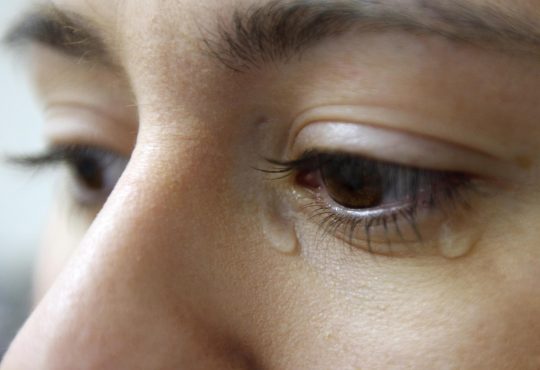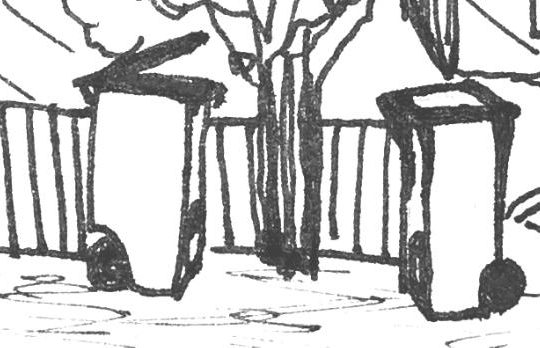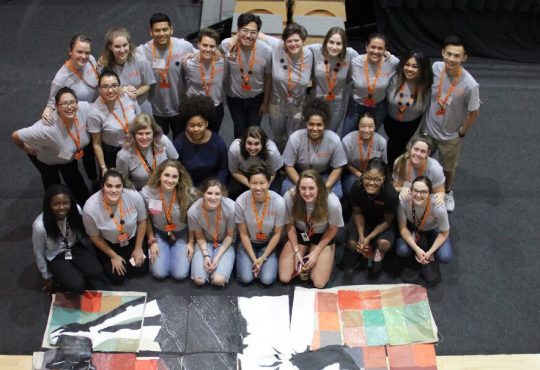
Last semester, the Black Student Union held an event titled “Uncensored.” The idea was that a few members, including myself, would sit on a panel and address anonymous and live questions before an audience of our peers and teachers with the intent of shedding some light on the experience of being black on campus.
We received enough questions to host an hour-long panel. Points of interest ranged from academia and Eurocentric teaching to activism and white saviorism — but the question that affected the most black students, and was touched on by every member of the panel, was simple: “Why can’t we (white people) touch your hair?” The answer, unanimously, was and is, “because it’s not yours.” And that remains relevant, especially with the Race and Pedagogy National Conference on campus last weekend.
But in deeper response to the question of why white people can’t touch a black person’s hair, I pose three critical questions that only the white person can truly answer: Under what circumstances do you want to touch it? Would you want someone touching yours? And why do you want to touch ours?
Under what circumstances do you want to touch a black person’s hair? What parameters suggest to you that it’s okay to do so? I ask this to stress that the answer is very simple and ingrained into most people from childhood. The one thing you need in order to touch a black person’s hair is permission.
For example, during consensual intimate cuddling or sex, it’s not usually off-limits to put your hands all over someone’s body, and that rule doesn’t change if you’re having sex with a black person (I hope). Another circumstance would be in a childcare setting, where an adult may soothe or speak to a black child by touching them, just as they would do to other children, on the head or arms because human contact is vital to a young person’s development. These are examples of permission. Yanking a girl’s box braids out of curiosity, or pulling on a weave or wig to see if it will come out? Unacceptable, and certainly done without permission.
But that loose rule of permission doesn’t dig quite as deep as it needs to, so I ask if you, a white person, would want someone touching your hair without permission? The answer is usually no, and for good reason: hair care. Black hair is extremely diverse and complex; styling and caring for it can take hours and most definitely takes hundreds of dollars. Black hair is a pivotal part of black identity; it is a means of self-expression, and so much more. Would you want someone grabbing your pigtails like a middle school bully, or pulling out your french braid that took you 10 minutes, or ruffling your carefully-crafted spiky hairdo? No. So recognize that black people are just as human as you, putting time and effort into their appearance every day because it means something to them. Consider the weight black hair holds for black people before asking permission to touch their hair.
Which leads to the final question: Why do white people want to touch black hair? Unpacking this could easily be another essay in itself. The story of Sara Baartman, an African woman who was abducted and paraded around Europe in a cage as an exhibit for her large posterior and black facial features, is an example of the root of this question — dehumanization and exoticism. Stories like Baartman’s occur in miniature form across the world every day, though it remains just as powerful. It tells black people, especially black girls, that they are objects.
The hair-touching phenomenon particularly affects black women because of the tendency of men to objectify women, which piggybacks on the tendency of a white person to dehumanize a black person, hence why black women are the most vocal about this issue. When they are objectified, the parts of their body that they cannot control, such as their natural hair, their body type, their bone structure, do not belong to them. By placing your hand on the hair of a black person without explicit permission and an actual reason, you are reinforcing this feeling in them.
I guarantee that your black friend knows what it feels like to be dehumanized, petted like a zoo animal, and so if you decide to touch their hair, you’re guilty of making them reckon with those feelings yet again. So why do you want to touch their hair?
Too many accounts of hair harassment have occured on campus for me to count and cite. I could write an article every week about five new ones that pop up, with more theories and criticisms, and pray that something gets through to the perpetrators (intentional or unintentional). So all that can be said, in answer to my questions and yours, is simple common sense: just don’t touch our hair.






